第102章
"Good," I said; "let my destiny take its course."But, before quitting, perhaps forever, this house in which I was leaving my soul, I wished to see Edmee again for the last time. Iwalked straight to her room. Mademoiselle Leblanc tried to throw herself in front of the door; I pushed her aside so roughly that she fell, and, I believe, hurt herself slightly. She immediately filled the house with her cries; and later, in the trial, made a great pother about what she was pleased to call an attempt to murder her. I at once entered Edmee's room; there I found the abbe and the doctor. Ilistened in silence to what the latter was saying. I learnt that the wounds in themselves were not mortal, that they would not even be very serious, had not a violent disturbance in the brain complicated the evil and made him fear tetanus. This frightful word fell upon me like a death sentence. In America I had seen many men die of this terrible malady, the result of wounds received in the war. I approached the bed. The abbe was so alarmed that he did not think of preventing me. Itook Edmee's hand, cold and lifeless, as ever. I kissed it a last time, and, without saying a single word to the others, went and gave myself up to the police.
XXIV
I was immediately thrown into prison at La Chatre. The public prosecutor for the district of Issoudun took in hand this case of the attempted murder of Mademoiselle de Mauprat, and obtained permission to have a monitory published on the morrow. He went to the village of Sainte-Severe, and then to the farms in the neighbourhood of the Curat woods, where the event had happened, and took the depositions of more than thirty witnesses. Then, eight days after I had been arrested, the writ of arrest was issued. If my mind had been less distracted, or if some one had interested himself in me, this breach of the law and many others that occurred during the trial might have been adduced as powerful arguments in my favour. They would at least have shown that the proceedings were inspired by some secret hatred. In the whole course of the affair an invisible hand directed everything with pitiless haste and severity.
The first examination had produced but a single indictment against me;this came from Mademoiselle Leblanc. The men who had taken part in the hunt declared that they knew nothing, and had no reason to regard the occurrence as a deliberate attempt at murder. Mademoiselle Leblanc, however, who had an old grudge against me for certain jokes I had ventured to make at her expense, and who, moreover, had been suborned, as I learned afterward, declared that Edmee, on recovering from her first swoon, at a time when she was quite calm and in full possession of her reason, had confided to her, under a pledge of secrecy, that she had been insulted, threatened, dragged from her horse, and finally shot by me. This wicked old maid, putting together the various revelations that Edmee had made in her delirium, had, cleverly enough, composed a connected narrative, and added to it all the embellishments that hatred could suggest. Distorting the incoherent words and vague impressions of her mistress, she declared upon oath that Edmee had seen me point the barrel of my carbine at her, with the words, "As Iswore, you shall die by my hand."
Saint-Jean, who was examined the same day, declared that he knew nothing beyond what Mademoiselle Leblanc had told him that evening, and his deposition was very similar to hers. He was honest enough, but dull and narrow-minded. From love of exactness, he omitted no trifling detail which might be interpreted against me. He asserted that I had always been subject to pains in the head, during which I lost my senses; that several times previously, when my nerves were disordered, I had spoken of blood and murder to some individual whom I always fancied I could see; and, finally, that my temper was so violent that I was "capable of throwing the first thing that came to hand at any one's head, though as a fact I had never, to his knowledge, committed any excess of this kind." Such are the depositions that frequently decide life and death in criminal cases.
Patience could not be found on the day of this inquiry. The abbe declared that his ideas on the occurrence were so vague that he would undergo all the penalties inflicted on recalcitrant witnesses rather than express his opinion before fuller investigations had been made.
He requested the public prosecutor to give him time, promising on his honour that he would not resist the demands of justice, and representing that at the end of a few days, by inquiring into certain things, he would probably arrive at a conviction of some sort; in this event he undertook to speak plainly, either for or against me. This delay was granted.
Marcasse simply said that if I had inflicted the wounds on Mademoiselle de Mauprat, about which he was beginning to feel very doubtful, I had at least inflicted them unintentionally; on this he was prepared to stake his honour and his life.
Such was the result of the first inquiry. It was resumed at various times during the following days, and several false witnesses swore that they had seen me shoot Mademoiselle de Mauprat, after vainly endeavouring to make her yield to my wishes.